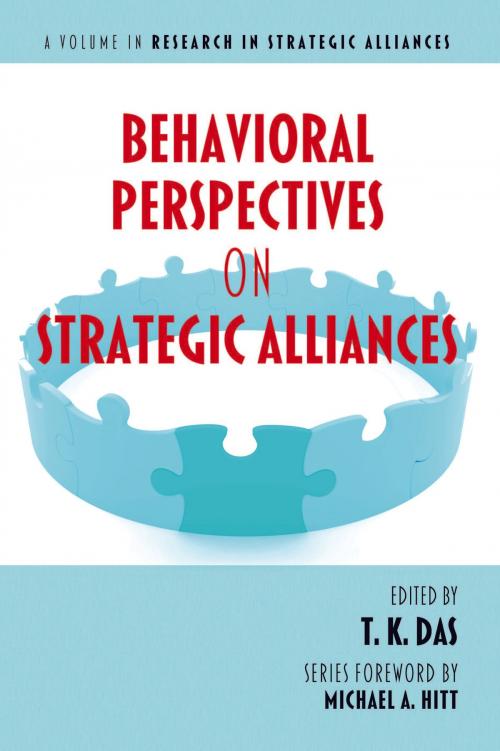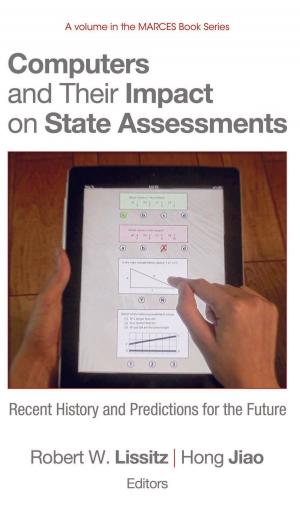Behavioral Perspectives on Strategic Alliances
Business & Finance, Management & Leadership, Operations Research, Management| Author: | ISBN: | 9781617355400 | |
| Publisher: | Information Age Publishing | Publication: | November 1, 2011 |
| Imprint: | Information Age Publishing | Language: | English |
| Author: | |
| ISBN: | 9781617355400 |
| Publisher: | Information Age Publishing |
| Publication: | November 1, 2011 |
| Imprint: | Information Age Publishing |
| Language: | English |
Behavioral Perspectives on Strategic Alliances is a volume in the book series Research in Strategic Alliances that will focus on providing a robust and comprehensive forum for new scholarship in the field of strategic alliances. In particular, the books in the series will cover new views of interdisciplinary theoretical frameworks and models, significant practical problems of alliance organization and management, and emerging areas of inquiry. The series will also include comprehensive empirical studies of selected segments of business, economic, industrial, government, and nonprofit activities with wide prevalence of strategic alliances. Through the ongoing release of focused topical titles, this book series will seek to disseminate theoretical insights and practical management information that will enable interested professionals to gain a rigorous and comprehensive understanding of the field of strategic alliances. Behavioral Perspectives on Strategic Alliances contains contributions by leading scholars in the field of strategic alliance research. The 14 chapters in this volume cover a number of significant topics that examine the increasingly prominent role of behavioral factors in alliance evolution and management. This behavioral perspective is only recently emerging in the literature but its roots lie in the impact of micro level variables on macro level outcomes. The chapters cover both the traditional behavioral issues, including the role of alliance managers and the dynamics of trust and cooperation, and the emerging research perspectives that deal with topics such as the enactment of alliances, sensemaking in interorganizational relationships, building an alliance culture, managing internal tensions, cognitive dissimilarities, behavioral responses to adverse situations, interpartner legitimacy, and interpretive schemes. The chapters include empirical as well as conceptual treatments of the selected topics, and collectively present a wideranging review of the noteworthy behavioral perspectives in the field of alliance research.
Behavioral Perspectives on Strategic Alliances is a volume in the book series Research in Strategic Alliances that will focus on providing a robust and comprehensive forum for new scholarship in the field of strategic alliances. In particular, the books in the series will cover new views of interdisciplinary theoretical frameworks and models, significant practical problems of alliance organization and management, and emerging areas of inquiry. The series will also include comprehensive empirical studies of selected segments of business, economic, industrial, government, and nonprofit activities with wide prevalence of strategic alliances. Through the ongoing release of focused topical titles, this book series will seek to disseminate theoretical insights and practical management information that will enable interested professionals to gain a rigorous and comprehensive understanding of the field of strategic alliances. Behavioral Perspectives on Strategic Alliances contains contributions by leading scholars in the field of strategic alliance research. The 14 chapters in this volume cover a number of significant topics that examine the increasingly prominent role of behavioral factors in alliance evolution and management. This behavioral perspective is only recently emerging in the literature but its roots lie in the impact of micro level variables on macro level outcomes. The chapters cover both the traditional behavioral issues, including the role of alliance managers and the dynamics of trust and cooperation, and the emerging research perspectives that deal with topics such as the enactment of alliances, sensemaking in interorganizational relationships, building an alliance culture, managing internal tensions, cognitive dissimilarities, behavioral responses to adverse situations, interpartner legitimacy, and interpretive schemes. The chapters include empirical as well as conceptual treatments of the selected topics, and collectively present a wideranging review of the noteworthy behavioral perspectives in the field of alliance research.















